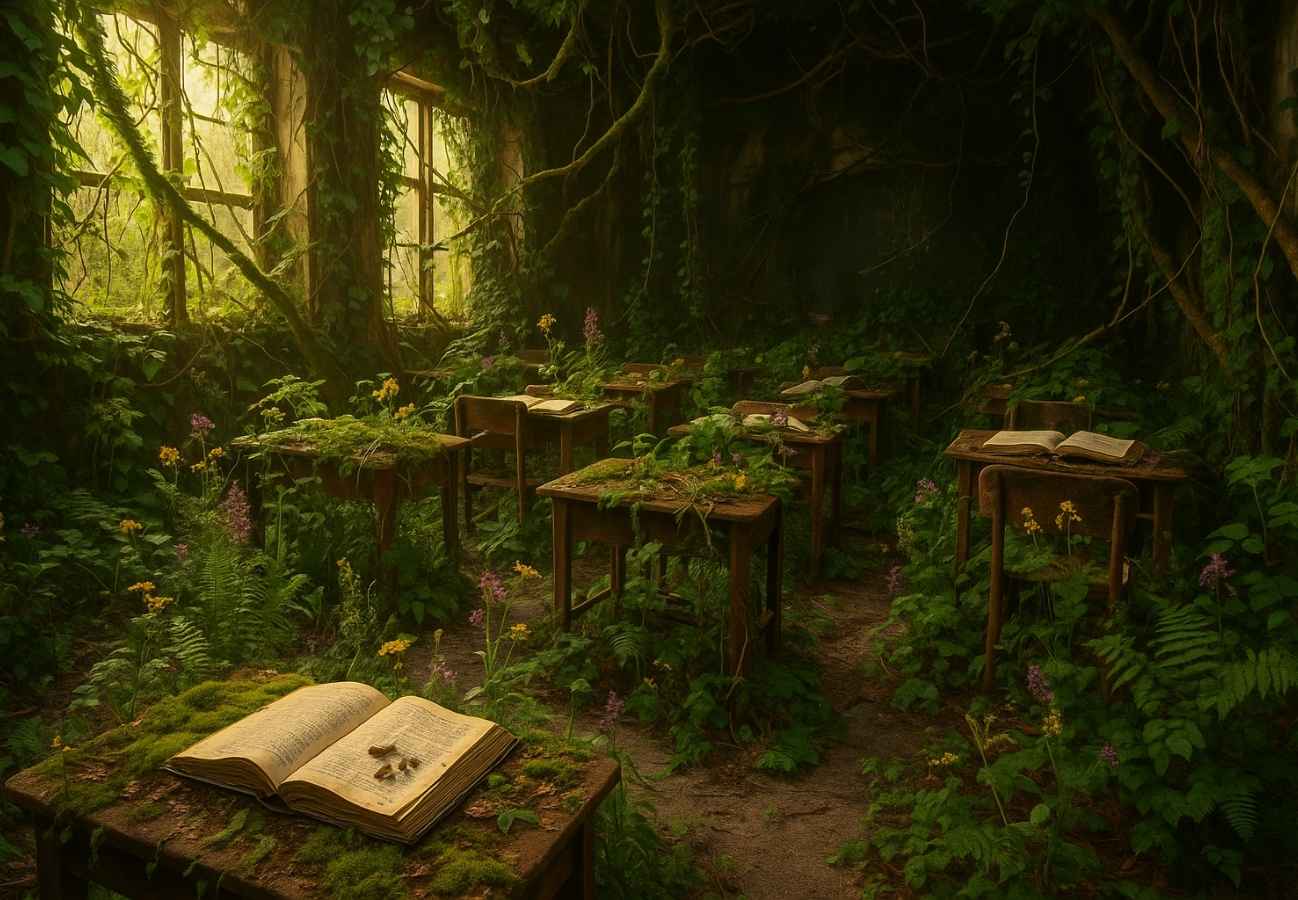Schools are stuck in the industrial age while the world has moved on.
Walk into any classroom and you'll see it: rows of desks, age-based groupings, bells and schedules. The same structures from a century ago, designed for factory workers who needed to follow instructions and memorize facts.
But the world no longer works that way. And neither do humans.
This isn't about fixing schools. It's about starting over with what we now know about how people actually learn, how brains develop, and what the future demands.
What's Breaking in Education?
The foundation is wrong. We built schools on assumptions that contradict everything neuroscience tells us about learning and everything the 21st century demands from humans.
See how our schools systematically fail us and understand why fear drives so many educational choices.
Parents watch their children sit through the same experience they had decades ago. Teachers feel trapped delivering content they know doesn't work. Students suppress the very capacities they'll need most.
The disconnect is no longer subtle.
We Need Redesign, Not Reform
Reform tries to improve what exists. Better curricula, more technology, updated standards.
But you can't reform your way out of a faulty foundation. When the basic assumptions are wrong, sophistication just makes things worse.
Understand why education redesign is necessary and explore our take on the principles that could guide education transformation.
Complex systems can't be prescribed from above. We can't dictate solutions. But we can provide tools, frameworks, and communities based on what science tells us actually works.
What Do We Need to Change in Education?
Future-ready learning starts from how humans actually develop. It should be based on our decades of learnings in neuroscience, not carried over from the past with nostalgia. It should start from what learners need, not what institutions want to preserve.
Some key shifts should take place:
- From information delivery to learning facilitation
- From standardization to personalization
- From external control to intrinsic motivation
- From preparing for known futures to building adaptability.
This requires understanding what makes humans unique in an age of AI. Not computational power or memory. 21st century skills are based on our distinctive capacities: creativity, imagination, meaning-making, authentic connection.
And it requires understanding theories of how learning actually happens - something most school designs completely ignore.
Educators Redefining Their Roles
Real transformation starts with each educator reimagining and redefining their own role.
Not as information deliverers. As learning guides who understand how the brain works, who can facilitate discovery, who create conditions for genuine growth.
This shift requires reflection on your teaching practice, your image of the child, your knowledge attitudes.
It requires learning about neuroscience and developmental theories, and what actually enables human flourishing.
Then comes the personal transformation journey. Experimenting. Observing. Reflecting. Supported by a community of peers navigating the same territory.
Explore our guide on teaching strategies.
The path isn't prescriptive. It's emergent. We provide frameworks, tools, and peer support for your journey.
School Leaders Redesigning New Learning Environments
Leaders need to build cultures that enable transformation. Not mandate programs. Not enforce compliance.
Create conditions for relaxed but orderly learning settings. Protect space for inquiry. Enable peer-powered professional development that sticks.
This means turning your schools into genuine learning organizations where adults model the same growth mindset we want for students.
It means understanding that sustainable change comes from educators who've done their own internal work, supported by trusted communities over time.
Review our guide for school leaders.
Our Approach: Space for Real Transformation
We're not selling a program. We're not prescribing the answer.
We're building infrastructure for transformation:
For Educators: Training in neuroscience, learning theories, developmental phases. Frameworks for reflecting on your practice and image of the child. Peer support communities. Tools for experimenting safely.
For Leaders: Frameworks for building learning organizations. Resources for creating cultures of inquiry. Approaches that honor complexity without rushing to premature solutions.
For Everyone: Knowledge resources that challenge broken assumptions. Tools aligned with how humans actually develop. Communities where it's safe to question and experiment.
The stance: transformation happens through personal work, supported reflection, and peer-powered communities. Not through mandates or programs imposed from above.
The Bigger Picture
This work touches on questions that run deeper than curriculum and pedagogy.
What does it mean to be human in an age of AI? How do we honor capacities we can't measure? What role do artists play in education? Why do our beliefs about children shape everything?
Some of our explorations go beyond practical implementation into philosophical territory. The Artist's Cycle. The microbial human. The value of vulnerability. Post-AI learning.
Others connect to learning science, research, and frameworks. Brain-based learning. Montessori principles. Peter Senge's learning organizations. The Finnish approach.
Still others address parents navigating anxiety and uncertainty. Or educators adopting a start-up mindset. Or the systemic perspective we need today more than ever.
This is work in progress. We're building the blueprint together.
Join Us
We're creating a community of educators, leaders, and parents who refuse to accept that education must stay frozen in obsolete assumptions.
We're building tools. Creating frameworks. Fostering communities. Making resources available publicly so transformation can happen faster.
This requires your participation. Your experiments. Your voice.
Join our network to access resources and connect with others navigating this work.








